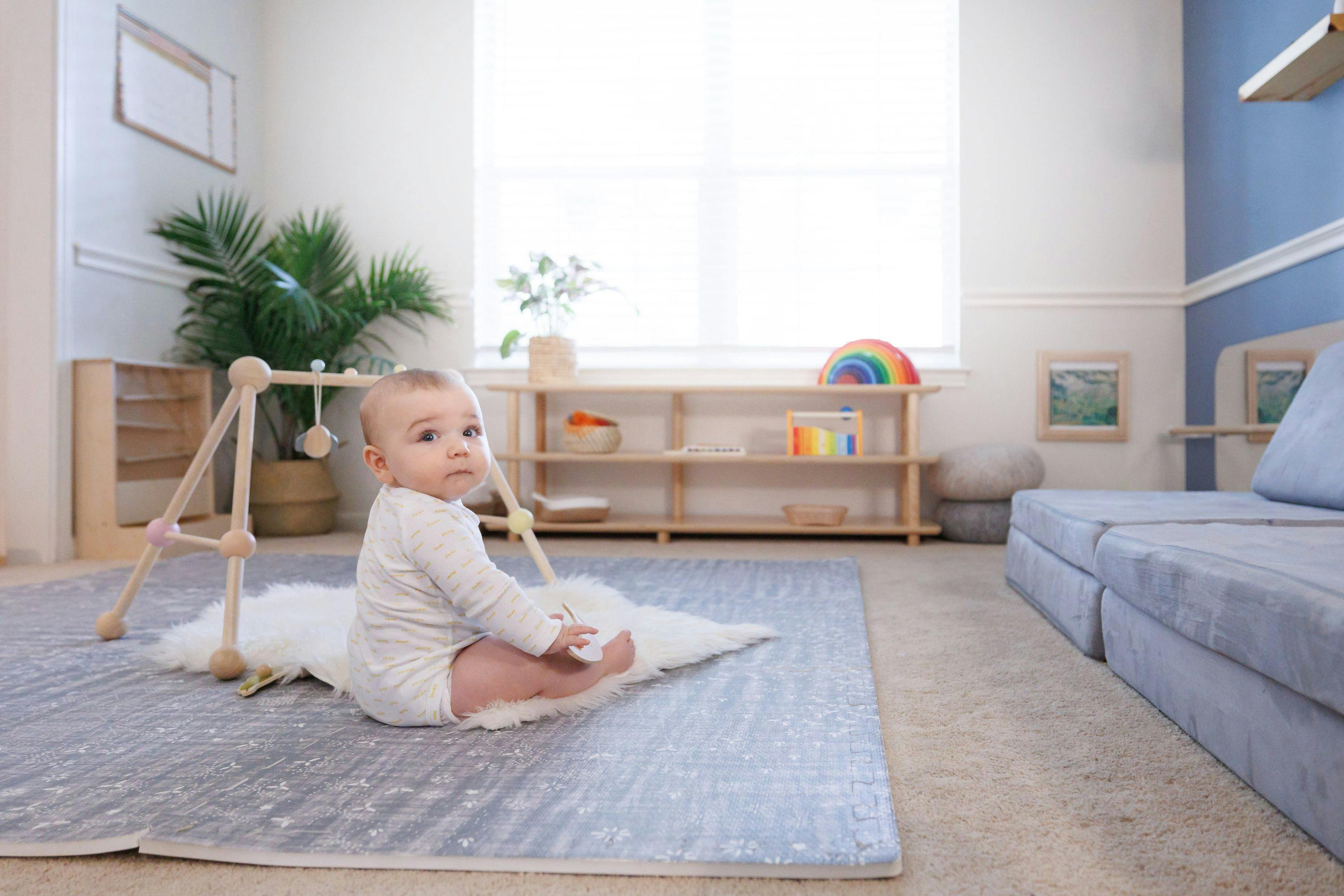Picco
An in-home program for infants ages 6 weeks to 16 months old (age varies according to location)
The Program
Picco is derived from the Italian word piccolo, or “little”, which is exactly what these programs are – small scale, in-home Nido classrooms designed for up to 5-6 children and two guides. Located in home spaces that are selected and operated by Guidepost Montessori, Picco classrooms combine the intimacy of a nanny share with the structure and development expertise of a school classroom.
- Beautiful by design
When you first visit a Picco environment, you will be struck by its calmness and serenity. The classroom is open, with natural light, and is furnished with beautiful child-sized furniture and objects. Soft rugs, plush mattresses, and low comfortable chairs for growing bodies to sit on.
- Space to walk and talk
- Building confidence and feeling loved
- Freedom and encouragement to try new things
- Scientifically designed learning materials
- Teachers keep parents and caregivers involved
Our approach
Strong bodies and coordinated movement
Much of your baby’s energy early on will go toward building gross motor ability, as he learns to hold up his head, roll over, push up off the ground, sit up, stand, walk, climb, etc. Successful development in this area sets the stage for strength and coordination later in life, which are necessary to enjoy sports, dance, or daily life recreational activities.
For babies to fully learn to do all these things, they must have time, space, and freedom to move, so that they can practice each individual step along the way. When you first visit one of our Picco communities, you’ll probably notice that there are no playpens, no jumpers, no walkers, and no high chairs—nothing that restricts your baby’s movement.
Confidence
Your tiny baby is trying new things all the time. Each time your baby practices a new skill, and then masters it, she strengthens the sense of confidence that will stay with her throughout her lifetime. Even your tiny baby imitates others, and can begin to take small steps towards independent self-care. Your Montessori guides will gently support your baby to learn to do things for herself, striking just the right balance between making your little one feel safe and loved, and identifying the right moment to encourage her to try something new.
Self-feeding is one of the early ways that your baby can practice independence in the area of self-care. As your baby learns to sit reliably, she sits at a tiny table on a sturdy chair, sized so that she can crawl in and out of the chair herself. We provide real dishes, glasses and utensils, just her size, as soon as she is ready to learn to use them. The adult does as much as necessary but as little as possible at any given stage, helping your baby to do it “all by myself”!
Trust in self and in the world
Following your baby's natural schedule encourages him to trust his body, and encourages a healthy relationship to sleeping, eating, and toileting. In the Picco community, we observe your baby's natural cycle of feeding, sleeping, and biological functions, and provide for his needs on his own schedule. This way, your little one develops a basic sense of security and trust in the world: at a fundamental level, he learns that he is taken care of, that his needs will be provided for. As he learns each step towards meeting those needs himself — crawling towards his sleeping area, feeding himself, or signing that his diaper is wet — his trust in himself grows, too!
Developing language
We know the extreme importance of exposing your baby to rich spoken language and dynamic verbal interactions, in order to give his developing brain everything needed to master language. Our interactions with your baby are vibrant and meaningful. We describe what he is doing, what we are doing, and what other children are doing, making sure that he can watch the movements of our mouths as we speak.
As your baby becomes more familiar with precise language, he also begins to form connections between language, tone, and his own emotions. We expose your baby to as much vocabulary as possible, by clearly identifying objects and actions. Additionally, we read beautiful books about real people and things, and we sing — exposing your child to the full range of speech and expression.
Hand development = brain development
Maria Montessori famously observed that “the hand is the instrument of the intelligence.” She understood that your baby uses her hand to fuel the development of her brain and nervous system. In a few short months, your baby goes from involuntary and reflexive movements, to intentionally batting and grabbing at objects, then to releasing something once she has grasped it. From there, she learns more refined grasping abilities, including the all-important “pincer grip” later used for holding a pencil. She transfers things from hand to hand, and coordinates her two hands for a chosen purpose (such as to bang things together!).
Our Picco environments carefully nurture your baby’s developing intelligence by offering increasingly more complex objects to explore and manipulate in intriguing ways. You’ll be amazed at how your child will learn, when simply given time and space to practice the activities that respond exactly to precise moments in her development.
